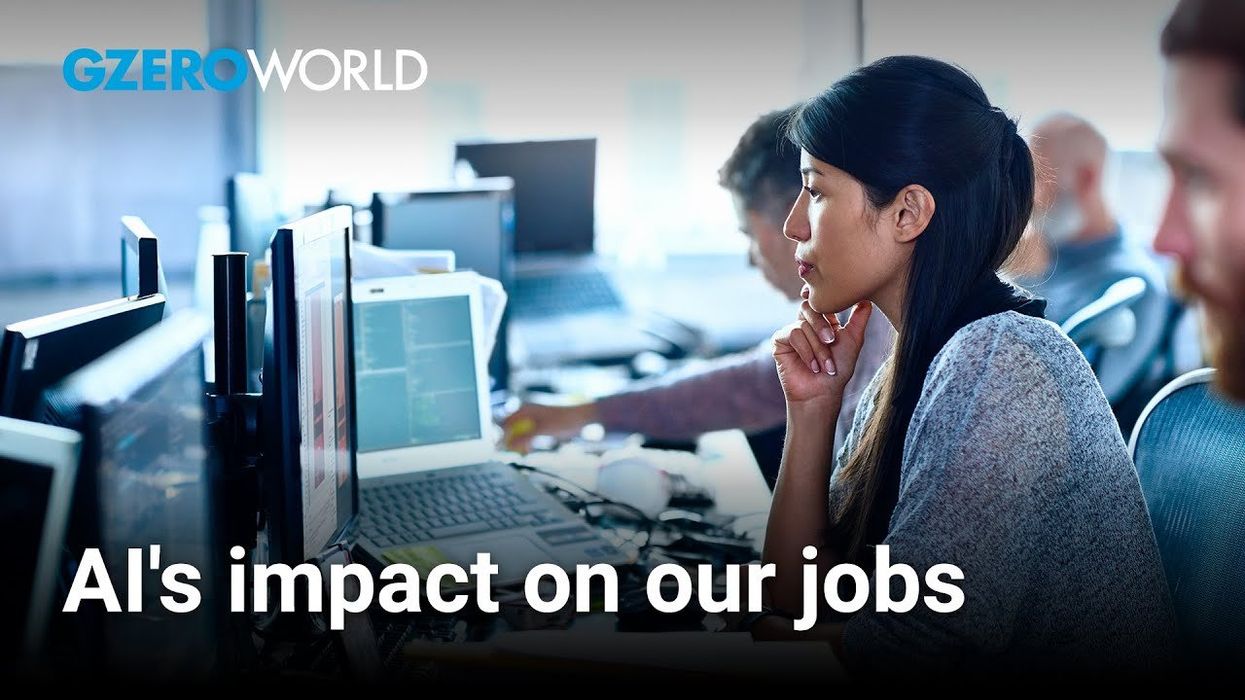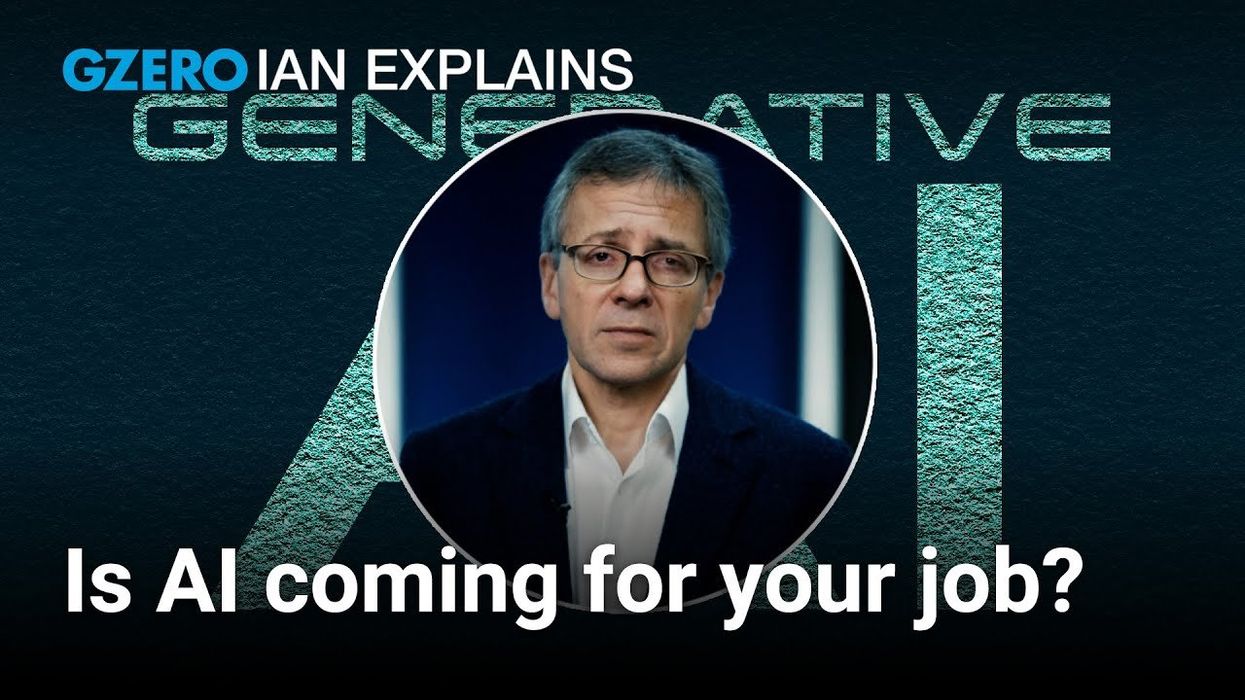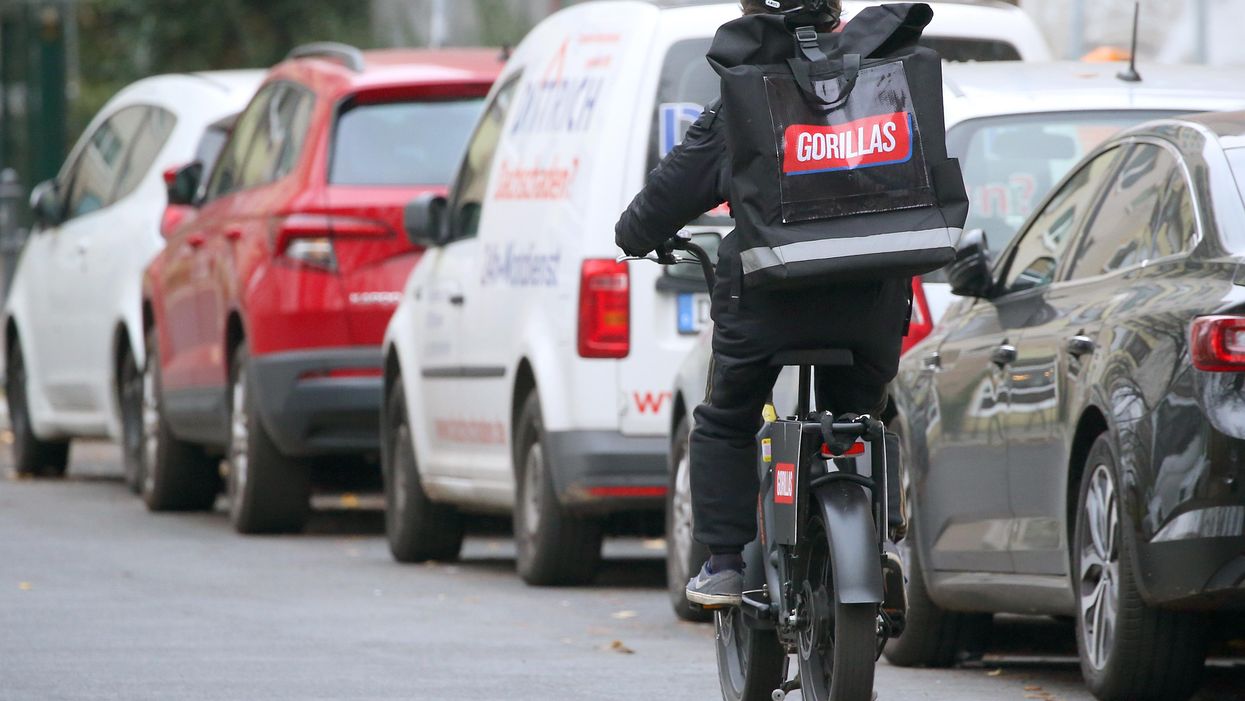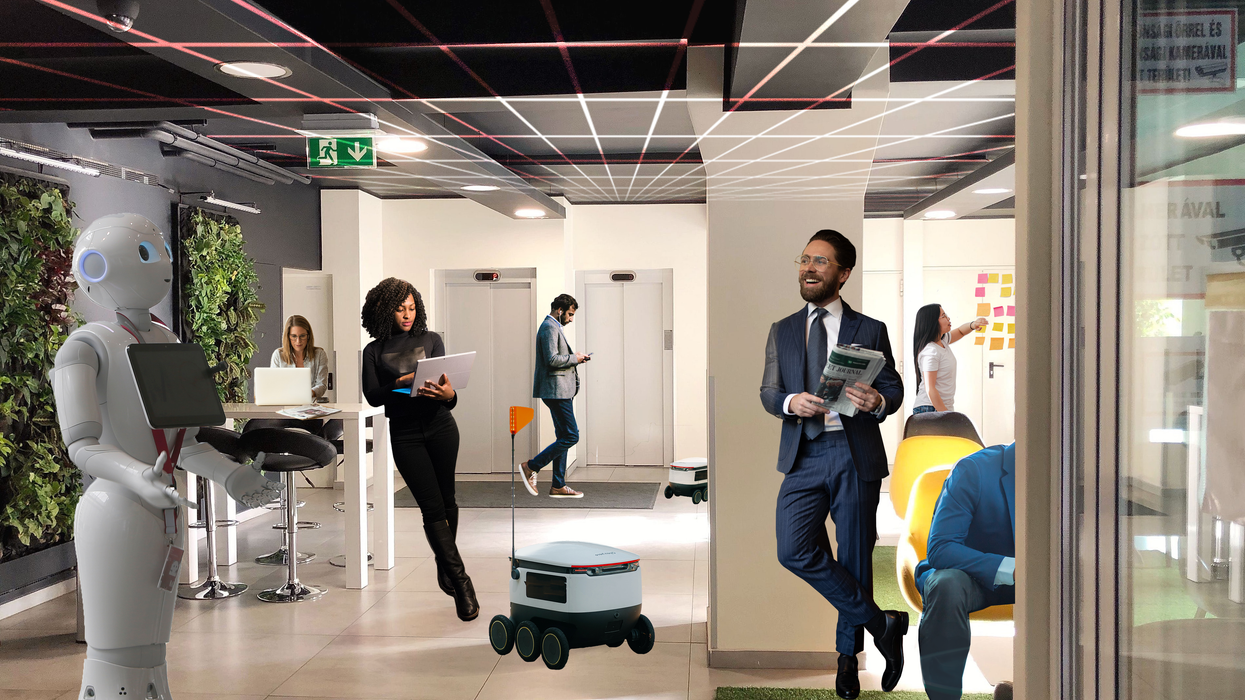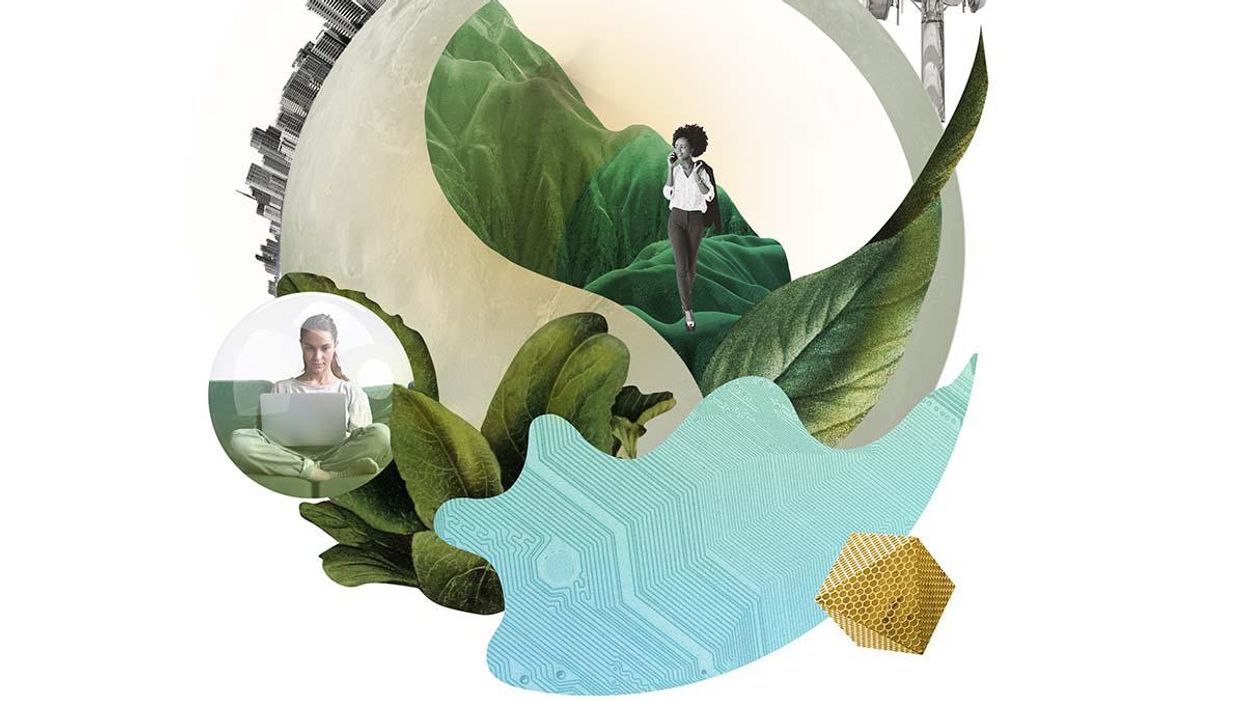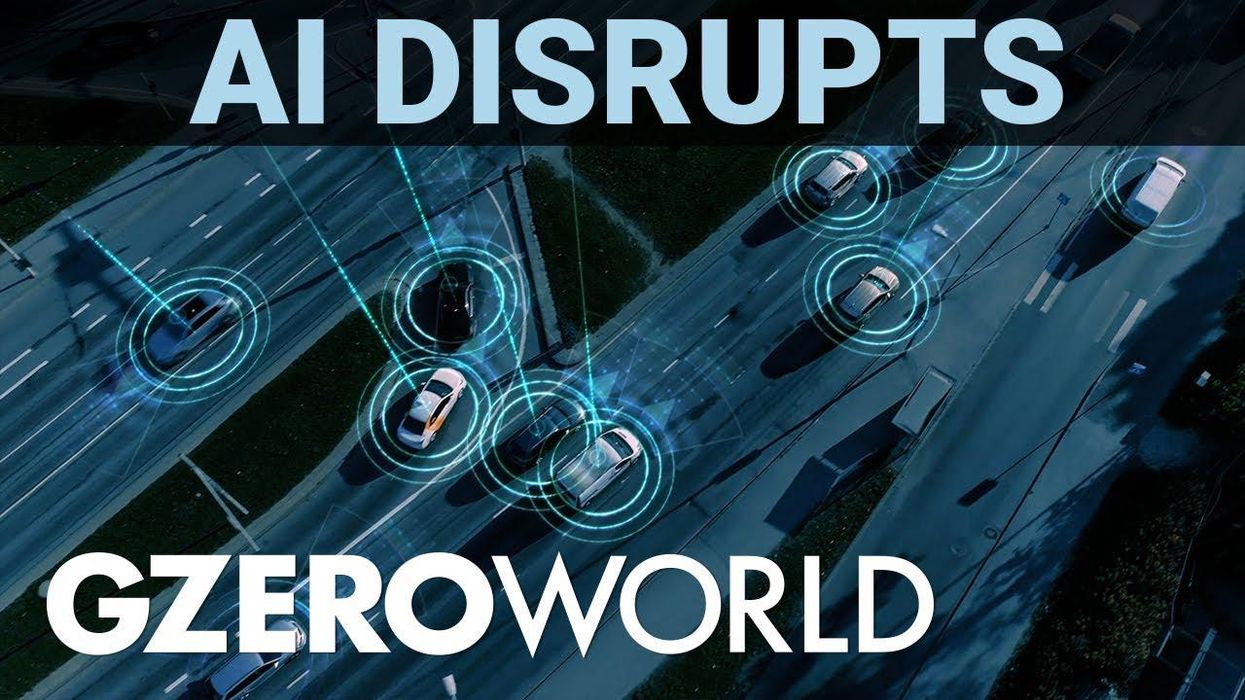GZERO World with Ian Bremmer
How AI is changing the world of work
Generative AI tools will transform our working lives, but will those changes be good or bad? On this episode of GZERO World, Ian Bremmer sat down with tech expert Azeem Azhar and organizational psychologist Adam Grant on the sidelines of the World Economic Forum in Davos, Switzerland, to answer these questions and more.
Feb 05, 2024
